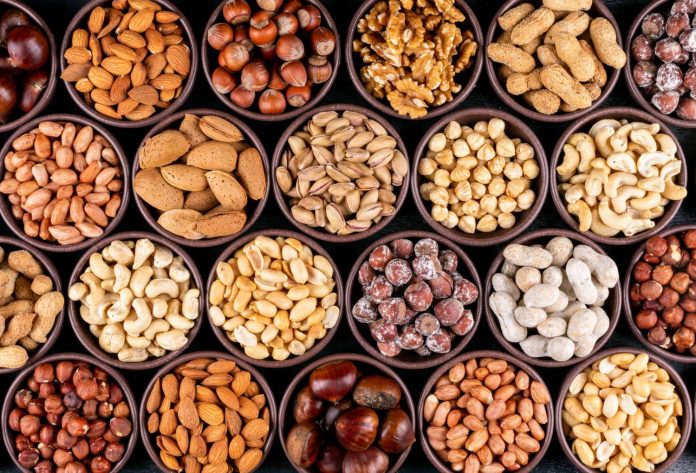Things you should know about the collagen diet
Collagen is a general term for structural proteins in the skin and connective tissue.
A collagen diet is an eating plan to consume foods high in collagen that some reports claim to improve skin and beauty. Experts generally agree that more research is needed before these claims can be proven.
Decreases in collagen with aging may lead to skin and hair problems.
A collagen diet is relatively safe if carefully monitored.
Collagen supplements are relatively safe as long as 20 grams per day is a maximum dose. However, some supplements have been determined not to be safe due to virus contamination or toxic content.
What is collagen? What is the collagen diet?
Collagen is a general term for the main structural proteins found in the skin and connective tissues in humans and animals and makes up about 30% of the protein in the human body. The principal function of collagen is to keep the skin healthy and help wounds and scars heal properly. It is broken down in the body into amino acids, which are then used for cell building and regeneration.
Collagen is comprised of 19 amino acids (for example, glycine, proline, hydroxyproline, lysine, and arginine). There are at least 29 types of collagen. Humans have mainly Types I-III:
Type I exists mainly in the skin, tendon, vasculature, organs, and bone.
Type II is in cartilage, and
Type III is in reticular fibers (thin branching fibers in connective tissue).
The collagen diet is an eating plan that emphasizes avoiding too much sugar and refined carbohydrates and consuming foods high in collagen. Since collagen levels decline with age, eating more collagen can help maintain youthfulness, energy, and beauty.
Other forms of the diet may include consuming collagen supplements (for example, Dr. Axe diet supplements) and collagen injections. Collagen supplements are usually derived from animal bones, skin, and connective tissues, although there are some vegan sources of collagen as well.
What happens when collagen levels drop?
The body’s production of collagen decreases dramatically with aging. When this happens, there is a reduction in your skin elasticity and epidermal thickness. This leads to skin damage and an increase in wrinkles, crepey skin, and sagging skin. Low collagen may also reduce hair growth and contribute to hair thinning.
Decreases in collagen may also lead to stiffer and less flexible tendons and ligaments, shrinking and weakening muscles, joint pain, osteoarthritis, and gastrointestinal problems.
What are food sources of collagen?
Food sources of collagen include the following:
Fish
Chicken
Egg whites
Citrus fruits
Berries
Red and yellow vegetables
Garlic
White tea
Leafy greens
Cashews
Tomatoes
Bell peppers
Beans
Avocados
Soy
Herbs high in collagen (Chinese knotweed, horsetail, gynostemma)
Herbs that help to produce collagen (gotukola, bala, ashwagandha)
The above foods are considered to be foods to improve skin elasticity, anti-aging, and help joint pain by individuals who recommend this diet. It is important to note that while small, limited studies have shown some benefits of consuming collagen, it is unclear whether these benefits would have also occurred by consuming any type of protein and maintaining a healthy diet in general. Also, since collagen cannot be absorbed and is broken down into amino acids when consumed, the consumption of collagen does not guarantee that any new collagen will be made.
7 possible health benefits of a collagen diet
Collagen plays an important role in many functions of the body, and following a collagen diet may have the following health benefits:
1. Improves skin health
Collagen improves skin elasticity and moisture. As you get older, your body stops creating as much collagen, which can lead to dry skin and wrinkles.
2. Prevents bone density loss
Collagen is a major part of bone mass. Winc your body produces less collagen as you age, it is important to eat foods that promote collagen production.
3. Eases joint pain
Advancing age increases the risk of osteoporosis (weak bones) which can also have an impact on joints. Collagen maintains the balance of cartilage in the body, which plays a crucial role in maintaining joint health and protecting bones from damage.
4. Promotes heart health
Without enough collagen, your arteries can weaken, constrict, and transport blood less effectively. Lack of collagen can lead to atherosclerosis, which is a condition in which plaque builds up in the arteries and leads to hardening or narrowing.
5. Promotes hair and nail growth
Collagen helps you maintain healthy hair and nails, encouraging shine and strength.
6. Promotes gut health
Collagen is beneficial to intestinal health, aiding digestion, repairing the lining of the gut, and promoting the growth of healthy gut bacteria.
7. Boosts metabolism
Collagen may boost metabolism, which improves your ability to burn fat and manage weight.
Although many of these claims have not been scientifically proven, the overall diet recommendations of the collagen diet (minus the supplements) often contain many foods that are recommended for a healthy diet.





























